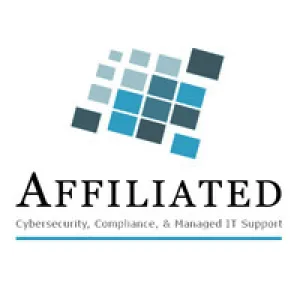August 28, 2025
If you're in healthcare, you already know HIPAA isn't a one-and-done checklist. It's a dynamic set of privacy and security requirements that demand constant attention, evaluation, and action. But too many providers still treat it like a static set of boxes to tick—right up until they're hit with a breach, audit, or compliance violation.
And let's be clear: when that happens, it's not just about fines. It's about lost trust, damaged reputation, and patient safety on the line.
So what does it actually take to stay HIPAA compliant? Spoiler: You won't find the answer in a templated policy binder or outdated EHR system alone. True compliance requires a proactive, hands-on approach from your IT support team that goes far beyond basic checklists.
The Myth of "One-and-Done" Compliance
It's tempting to believe that once you pass a risk assessment or implement encryption, you're in the clear. But HIPAA compliance is a moving target. Threats evolve. Regulations shift. Technology ages.
What worked a year ago might not cut it today.
That's why your IT support strategy needs to include regular updates, monitoring, and a culture of continuous improvement. It's not about reacting to problems. It's about staying ahead of them.
What Managed Services for Healthcare Should Actually Cover
A managed IT services provider that supports HIPAA compliance should act more like a risk mitigation partner than a ticket taker. Here's what that really looks like in practice:
Ongoing Risk Assessments
HIPAA mandates regular risk assessments, but many providers treat this like a checkbox. Instead, these assessments should be recurring events that evaluate not just your systems, but how people use them. Your IT support should:
- Run comprehensive scans for vulnerabilities
- Map risk to business operations
- Track user behaviors that may introduce risk
- Review changes in your tech stack or user base that may alter your threat profile
Proactive Network Monitoring and Threat Detection
It's not enough to respond to incidents after the fact. Managed IT services should include real-time network monitoring with alerts tied to suspicious activity. This includes:
- Endpoint detection and response (EDR)
- Intrusion detection/prevention systems (IDS/IPS)
- Active monitoring of remote access tools and mobile device usage
- Anomaly detection powered by behavioral analytics
Automated Patch Management and Software Updates
Unpatched systems are a HIPAA violation waiting to happen. Your IT provider should ensure operating systems, applications, and third-party tools are updated regularly with minimal disruption to staff or patients.
That includes:
- Prioritizing critical vulnerabilities based on known exploits
- Scheduling non-intrusive update windows
- Documenting patch cycles for audit trails
Encryption That Actually Works
Encryption is a cornerstone of HIPAA security rules. But just checking that "encryption is in place" doesn't cut it. Are you using up-to-date protocols? Is encryption applied both in transit and at rest? A solid IT team will review and test these regularly.
And beyond that, encryption policies should include:
- Mobile device encryption
- Encrypted email communication options
- Routine key management and rotation
Role-Based Access Controls and User Permissions
Who has access to what—and why? IT support should configure and regularly audit access permissions across systems, ensuring:
- Least-privilege access
- Timely removal of former staff accounts
- Strong authentication controls
- Logs and reports to trace access patterns
Secure Backup and Disaster Recovery
HIPAA requires data availability. That means you need more than a generic backup. You need:
- Encrypted, redundant backups
- Tested recovery protocols
- Clear recovery time objectives (RTOs) and recovery point objectives (RPOs)
- Disaster recovery playbooks specific to ransomware, system failure, and physical disasters
Employee Training and Phishing Simulation
Human error remains the #1 cause of data breaches in healthcare. Any IT support strategy should include:
- HIPAA-specific training
- Phishing simulations
- Reporting and remediation protocols
- Social engineering awareness campaigns
The Role of Liability-Guard in HIPAA Compliance
HIPAA compliance isn't just about your technology—it's about your risk posture. Liability-Guard is a specialized service that brings together cybersecurity readiness and compliance assurance.
- With Liability-Guard, organizations gain:
- Documentation and support to satisfy insurers and auditors
- Incident response planning and testing
- Vendor management strategies
- A compliance roadmap tailored to your environment
- Help preparing for cyber liability insurance renewals
It's not just a service. It's peace of mind.
Why Healthcare Data Security Demands More Than a Checklist
Healthcare environments are uniquely complex. From remote care tools and legacy devices to vendor portals and mobile apps, your data isn't confined to one box.
A checklist won't:
- Detect insider threats
- Catch misconfigured cloud storage
- Prevent phishing attacks
- Identify outdated legacy systems still tied to critical workflows
A managed IT services provider with healthcare-specific expertise will focus on holistic data protection that grows with your environment.
What Happens When IT Support Falls Short?
When HIPAA compliance is treated as a side project or afterthought, the consequences are serious:
- Fines and penalties: Noncompliance can cost millions.
- Patient care disruption: Breaches or downtime delay diagnoses and treatment.
- Reputation damage: Patients lose trust when data is mishandled.
- Insurance denial: Inadequate controls can impact cyber liability claims.
- Litigation risks: Breaches open the door to lawsuits and class-action exposure.
HIPAA is not optional. And it's certainly not passive.
How to Tell If Your IT Provider Is Up to the Task
Ask these questions:
- Do they perform routine HIPAA compliance assessments?
- Are they proactively monitoring for breaches and unusual activity?
- Have they built incident response plans and run tabletop exercises?
- Can they support your organization in the event of an audit?
- Do they stay current with changes in data compliance for HIPAA, HITECH, and NIST guidance?
If the answer is "no" or "not sure," it's time to reevaluate.
Compliance Is a Living Process
HIPAA compliance is less like checking a box and more like maintaining a heartbeat. It requires constant monitoring, regular input, and support from a team that actually understands what's at stake.
Affiliated Resource Group has been doing this for over 30 years. We help healthcare organizations in Columbus and across Central Ohio build compliance strategies that aren't just protective—they're empowering.
Click Here or give us a call at 614-889-6555 to Book a FREE Consult




